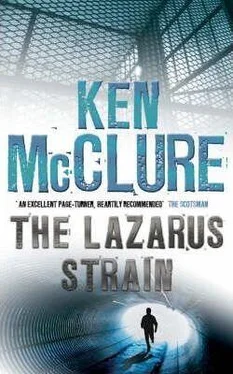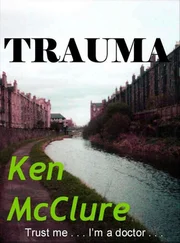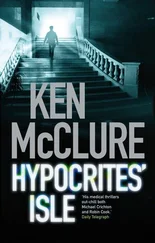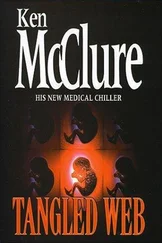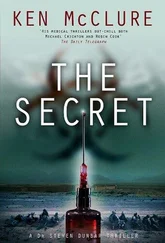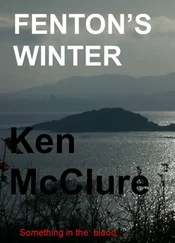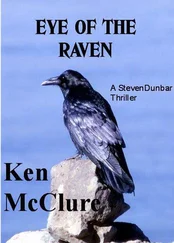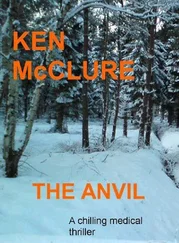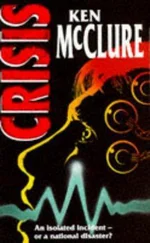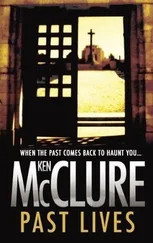‘No, he failed.’
‘Pity,’ said Giles. ‘I’d have liked to put this psycho away. What was in it anyway?’
‘A virus.’
‘Dare I ask?’
‘I’d rather you didn’t.’
‘So the suit who turned up from DOH wasn’t being quite honest with his assurances?’
‘Now, there’s a surprise,’ said Steven.
‘I’ve a good mind to…’
‘Don’t,’ said Steven. ‘It’s already been decided at high level that no action will be taken against DOH.’
Giles shook his head. ‘You couldn’t make it up, could you?’
‘Good intentions count for a lot apparently,’ said Steven.
‘They also pave the road to hell,’ added Giles. His phone rang. ‘Thanks for letting me know,’ he said after listening for a few seconds. ‘Dr Dunbar will be pleased.’
Steven looked up from his food, wondering if Giles was being sarcastic or not. There was no sign of it.
‘The army have found your monkey. It was found dead near Burnham Market. They’re taking the body back to the institute for incineration.
‘Thank God for that,’ said Steven, surprised at the relief he felt flood through him. ‘Nothing left lurking in the woods.’
‘What was it really carrying?’ asked Giles.
‘Flu,’ replied Steven, feeling more than a little guilty for bending the truth.
‘So that’s it then,’ said John Macmillan when Steven told him.
‘I think so,’ agreed Steven. ‘It was a messy business but it could have been so much worse. It’s probably the wrong man going down for Professor Devon’s murder but he was going down anyway…’
‘And it’s not a perfect world,’ said Macmillan.
‘Frank Giles of the Norfolk police has alerted neighbouring forces and they’ll keep an eye out for this Ali character in the future. It’s odds on he’s going to get into more trouble sooner or later.’
‘Remembering these photographs of Devon, I really hope it’s sooner,’ said Macmillan.
‘What next?’ asked Steven.
‘There’s a hospital in Newcastle the computer thinks we should take an interest in,’ said Macmillan. ‘The Victoria Hospital for Children. Its paediatric heart surgery results are giving cause for concern. Pick away at it, will you?’
Steven completed his investigation into suspicious surgical death patterns at the Victoria Hospital during the second week of January. The inquiry had straddled Christmas, which he had spent with his daughter Jenny and Richard and Susan and their children — a happy time although quickly overshadowed by the tsunami that hit the Far East on Boxing Day. Jenny had wanted to send her new bicycle to Thailand to make a child there happier.
The investigation had proved quite straightforward in the end and although the surgical death rates were undoubtedly higher than in other comparable hospitals, examination of the dead children’s notes had revealed the reason why. The head of paediatric surgery at the Victoria had real courage. Unlike so many of his contemporaries who always kept one eye on the statistical returns, Mr Cecil Digby FRCS, had taken on challenges that many other surgeons would have turned down and often agreed to operate on cases which were generally regarded as being too difficult or just plain hopeless. As a direct result of this, the death rate in his unit was much higher than the norm. Common sense dictated that it would be, but common sense didn’t show up in hospital returns; only numbers. On paper — the government’s preferred method for assessing so much, particularly in education and health — Digby’s figures looked worrying but the numbers weren’t telling the whole truth. The babies who died would have died anywhere else. The babies who lived however, had special reason to be grateful — or rather, their parents had — because anywhere else, they would probably have died too.
Steven had been able to determine this without ever confronting Digby personally. It was Sci-Med’s policy to keep their inquiries as discreet as possible and in this case, confidential arrangements had been made with the hospital records people in order to grant Steven access to patients’ notes. He managed to leave the hospital without Cecil Digby ever knowing he’d been investigated… or why. Steven was pleased and relieved at the outcome. At the outset, he’d been afraid that he had been sent to investigate the not uncommon problem of a surgeon continuing to operate after his or her abilities had started to decline.
The facts of the case however, made him reflect on the government obsession with auditing and target setting — well intentioned, no doubt, but disastrous in practice and the cause of much figure manipulating. Surgeons avoided high risk operations in favour of routine ones with a much higher success rate. Short operations were preferred to longer ones simply because you could get through more and therefore make the figures look better on paper — fine for those patients who needed a short, routine operation, not so good for those who needed complex surgery. Another example of the road to hell being paved with good intentions, he thought and then puzzled over who had said that to him recently…
It was after ten on Saturday evening when Steven got back to London after driving down from Newcastle — too late to start writing up his report for Sci-Med he reckoned: that could wait until Sunday. A hot bath, a large gin and tonic and a film on TV sounded a better option, but first he wanted to catch up on what had been happening in the world. He tuned to the Sky News channel and stuck with a discussion about the upcoming Iraqi elections until the headlines came up. The first item made his blood run cold. ‘Animal rights extremists carry out a second murder at English research institute,’ intoned the presenter over filmed footage of the Crick Institute and a dramatic musical score.
The substance of the report was that fifty-seven year old Robert Smith, a lab assistant, employed to look after animals at the institute had been attacked in his car as he drove down for his morning newspaper. Three men, reportedly driving a Land Rover, had forced him off the road, locked him inside his vehicle and set fire to it. He had been burned alive. Leaflets found near the scene had proclaimed his attackers’ allegiance to the animal rights movement.
Nick Cleary, appearing deeply upset, was interviewed on the steps of the institute. He pointed out the bitter irony of murdering someone who had been involved in animal welfare rather than experimentation — Smith had been employed to clean and feed the animals, he pointed out. Frank Giles, ill at ease in front of camera and sounding stilted, appealed for witnesses to come forward after stressing the horrific nature of Smith’s death and just how important it was that such vicious killers be caught. The head of a recognised animal rights movement was also interviewed — somewhat reluctantly, thought Steven. He condemned the murder while doing his best to distance himself and his organisation from the perpetrators, just as he had had to do only a couple of months before.
Steven phoned Giles. ‘I just saw it on the news.’
‘If ever there was a stupid, pointless crime, this is it,’ said Giles. ‘It doesn’t make sense on any level. They get huge adverse publicity after last time and then they go back and hit the same place all over again! What’s more, they pick on the one guy in the place who looks after animals. Talk about shit for brains!’
‘Does this put the mysterious Ali back in the frame?’ asked Steven.
‘In the worst possible way,’ said Giles. ‘There’s something I haven’t told you yet. Between you and me, I’ve got one good witness and I really wish I hadn’t.’
‘You don’t hear that too often from the police,’ said Steven.
Читать дальше
